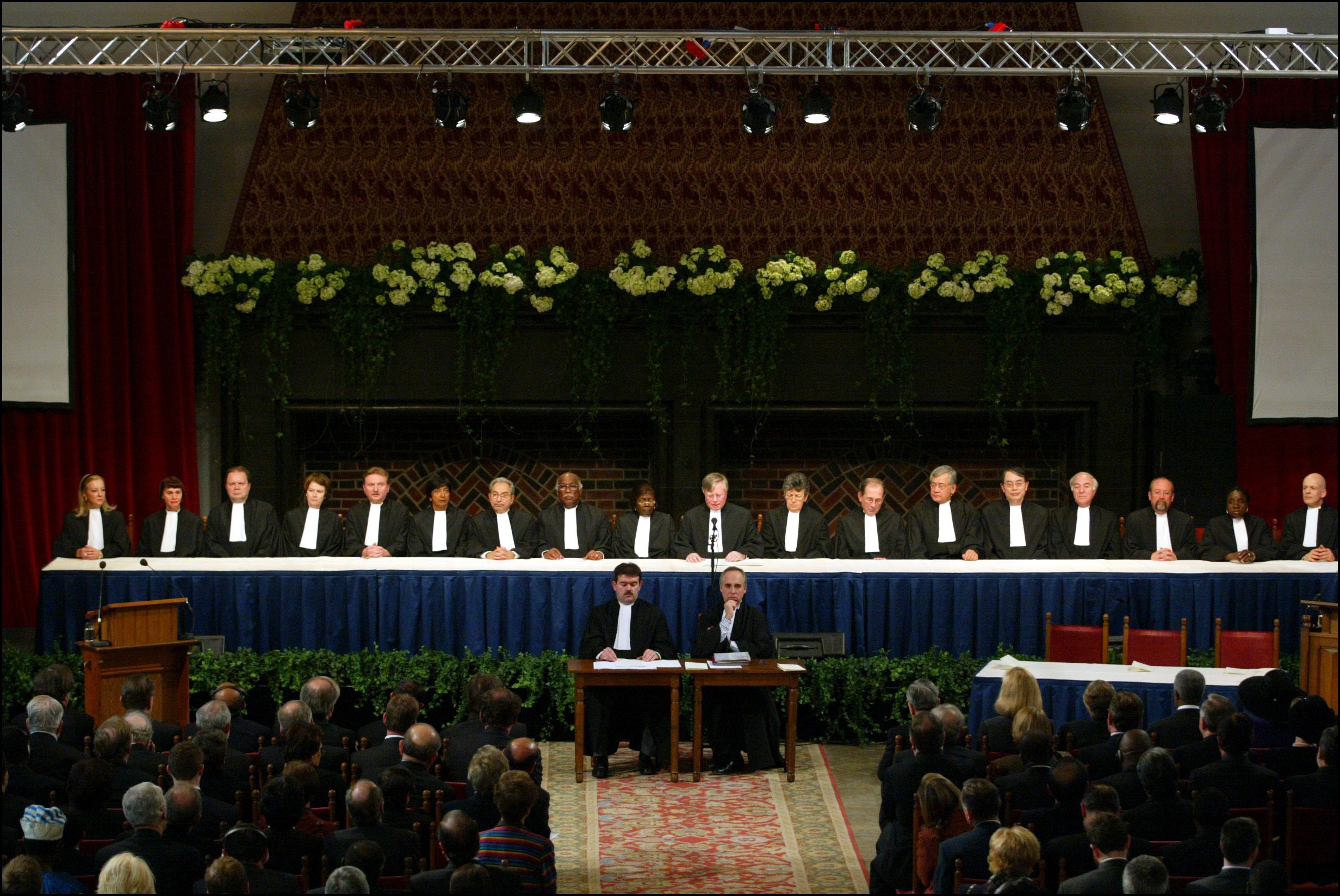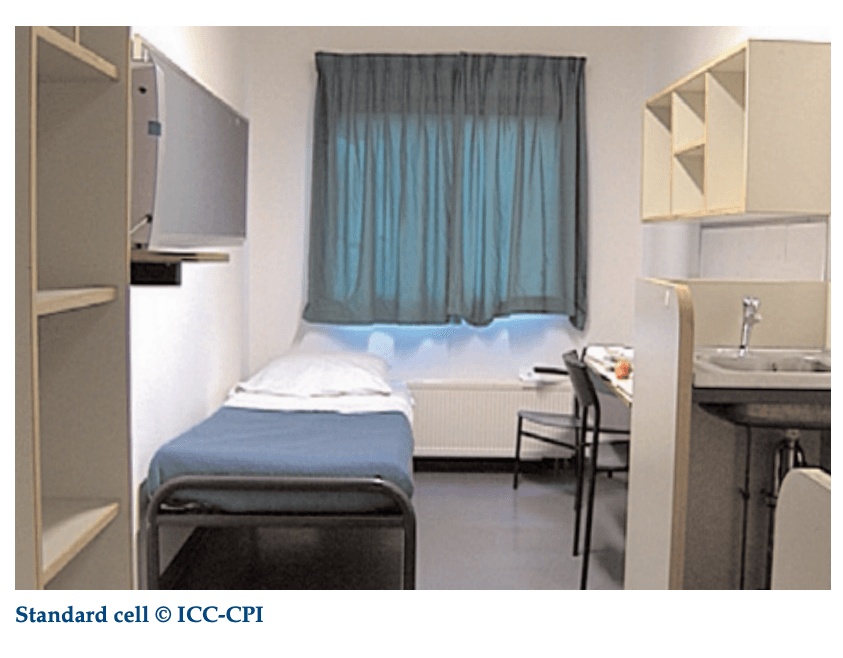At A Glance
- Former Philippine president Rodrigo Duterte was the latest individual to be handed over to the International Criminal Court (ICC), an international tribunal that investigates and tries individuals charged with the gravest crimes of concern to the international community.
- ICC respects the jurisdiction of a country's national court over such individuals, but it intervenes when "a State is unable or unwilling to genuinely carry out the investigation and prosecute the perpetrators," according to the ICC website.
​Former Philippine president Rodrigo Duterte was the latest individual to be handed over to the International Criminal Court (ICC), an international tribunal that investigates and tries individuals charged with the gravest crimes of concern to the international community.
Duterte is charged with crimes against humanity, particularly of murder under his infamous war on drugs that had led to the deaths of thousands of individuals in the Philippines.
Crime against humanity is one of the four charges that the ICC investigates, along with genocide, war crimes, and the crime of aggression.
What is the ICC?
Seated in The Hague in the Netherlands, the ICC—from the name itself—is an international court that handles charges filed against individuals who committed the most serious crimes, in the territory of a member state.
ICC respects the jurisdiction of a country's national court over such individuals, but intervenes when "a State is unable or unwilling to genuinely carry out the investigation and prosecute the perpetrators", according to the ICC website.
There wasn't a permanent international court before. So in 2002, after years of negotiation, the ICC was established.

This came after a conference of 160 states adopted in 1998 a treaty called the Rome Statute of the International Criminal Court​ or the simply "Rome Statute​," which was aimed at establishing a permanent international tribunal to prosecute individuals accused of committing the four international crimes.
Just like local courts in the Philippines, there are six stages in its legal process: the preliminary investigation, the investigation, the pre-trial stage, the trial stage, the appeals stage and the enforcement of a sentence.
The Pre-Trial Chamber of the ICC ordered the arrest of Duterte because it "appears necessary" for the pre-trial stage, according to the arrest warrant.
"The Chamber observes that Mr. Duterte, even though no longer the President of the Philippines, appears to continue to wield considerable power," the arrest warrant read.
"Mindful of the resultant risk of interference with the investigations and the security of witnesses and victims, the Chamber is satisfied that the arrest of Mr Duterte is necessary within the meaning of article 58 (1)(b)(i) of the Statue to ensure his appearance before the court," it added.
Duterte's charges
Duterte was ordered arrested by the ICC for crime against humanity, particularly of murder. The Pre-Trial Chamber judges, in its arrest warrant, cited Article 25 (3)(a) of the Rome Statute as its basis, which read:
"...A person shall be criminally responsible and liable for punishment for a crime within the jurisdiction of the Court if that person: commits such a crime, whether as an individual, jointly with another or through another person, regardless of whether that other person is criminally responsible."
The judges believed Duterte was responsible for the Davao Death Squad (DDS), which he allegedly headed during his term as Davao City mayor; and the killings of individuals during the war on drugs, which he launched during his presidency. Both of these had directly attacked the civilian population.
"Considering Mr. Duterte's role and position...the Chamber finds that he necessarily knew about the operations and their scope," the arrest warrant read.
"By having defined the scope and purpose of the operations, Mr. Duterte intended the conduct to be part of the widespread and systematic attack directed against all persons designated as involved in criminal activities, especially drug-related ones," it added.
Duterte's arrest
Duterte was arrested by Philippine authorities on Tuesday, March 11, at the Ninoy Aquino International Airport (NAIA) upon his arrival from Hong Kong.
His supporters questioned his arrest, which happened although the Philippines already withdrew from the ICC in 2019.
But the Pre-Trial Chamber said Duterte's crime was committed from 2011 to 2019—when the country was still an ICC member.
It was the International Criminal Police Organization or Interpol that received the arrest warrant from the ICC. It then coordinated with the Philippine government.
The Philippines is a member of the Interpol, and as a member, "we have obligations to Interpol and we have to live up to those obligations," President Marcos said.
What happens next?
Duterte was flown to The Hague before the midnight Tuesday after his arrest.
He was set to face pre-trial, and most probably a trial, at the ICC—which has so far handled 32 cases, convicted 11 individuals and acquitted 4.
If proven guilty, Duterte would serve a sentence in a country that will agree to enforce his sentence.
Article 103 (1)(a) of the Rome Statue stated that: :a sentence of imprisonment shall be served in a State designated by the Court from a list of States which have indicated to the Court their willingness to accept sentenced persons."
However, Article 103 (4), said that: "if no State is designated... the sentence of imprisonment shall be served in a prison facility made available by the host State, in accordance with the conditions set out in the headquarters agreement."
The detention center
While in The Hague, Duterte is expected to be detained at the ICC's detention center, which is located within a Dutch prison complex in Scheveningen—on the outskirts of The Hague.

According to the ICC website, it functions to hold in safe, secure and humane custody those persons detained under the authority of the ICC.
Each detention cell has a bed, a table, cabinets and a sink.
"Detained persons are provided with suitably prepared food that satisfies in quality and quantity the standards of dietetics and modern hygiene," the ICC website said.
"Additionally, detained persons are allowed to cook for themselves; they can purchase additional items, listed on the shopping list of the Detention Centre, as available, in order for them to adjust the meals provided to them, according to their taste and cultural requirements," it added.
Detained persons also have access to computer facilities to work on their own cases. They are alos given the opportunity of computer training, if needed.
"Following the mandate of the ICC, as an e-Court, each detained person has a computer in his/ her cell, which is linked to one specific computer at the court; only his defense has access to that computer. The defense can upload caserelated material which the detained person can access and make comments on," it said.
The ICC Detention Center also has a gym, a medical facility, a library and spiritual room, a visitation area, and an educational and occupational therapy room.